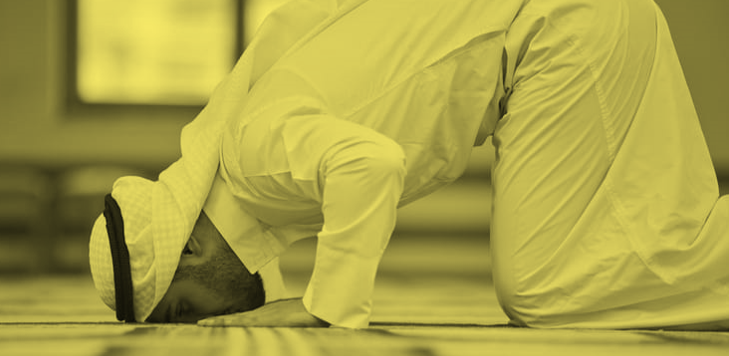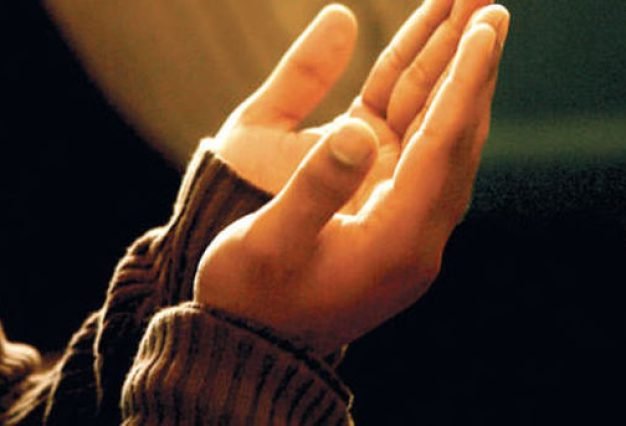Answered by Shaykh Yūsuf Badāt
Question:
There is a high chance for the current lockdown to continue throughout the entire Ramaḍān this year. I have been offering prayers with my family in the home. I know we either do Dhuhr or Jumuʿah at home if there are four male adults on the Friday. I was thinking what do we do about ʿEīd prayers if the lockdown is still in place? Can we perform ʿEīd prayers at home with our families or offer them individually?
Answer:
In the Name of God, Most Merciful, Most Kind
Jazāk Allāh Khayr/ Thank you for contacting Mathābah with your questions.
In the current COVID-19 lockdown situation where it is against the law to congregate, we would be exempt from offering ʿEīd prayers. Some jurists are of the view that if one wants, in such a situation, they may perform ʿEīd prayers individually or in a congregation at home. A group of jurists also state that, in place of the ʿEīd prayers, one can offer two or four units (rakaʾahs) of Ḍuḥā (optional forenoon) prayers. – (See: Kitāb Al-Fiqh ʿAlā Madhāhib Al-Arbaʿah, Al-Muḥīṭ Al-Burhānīy)
In regards to this matter, kindly see the detailed positions of the four schools of jurisprudence below:
Ḥanbalī School
According to Ḥanbalī jurisprudence, ʿEīd prayer is considered farḍ ʿalā al-kifāyah (a communal obligation). The one who is unable to offer ʿEīd prayer in congregation can do so individually at home in the same manner one would have performed it with an imam leading a congregation. If there are family members at home, they may offer the ʿEīd prayer in a congregation. – (See: Al-Mughnīy, Al-Inṣāf Al-Mardāwīy)
Mālikī School
The Mālikī school considers ʿEīd prayer as sunnah muʾakkadah (an emphatic prophetic practice). One who is unable to perform ʿEīd prayer in a large congregation can do so individually or in a small congregation at home. – (See: Sharḥ Al-Khurashī)
Shāfʿīe School
The status of the ʿEīd prayer is sunnah muʾakkadah (an emphatic prophetic practice) according to the Shāfʿīe school. If one is unable to attend a large congregational ʿEīd prayer, they are permitted to pray alone at home in the same manner that one would pray behind an imam leading a congregation. For ʿEīd prayer, there is no stipulation of a muslim ruler nor a congregation. – (See: Al-Majmū, Mukhtaṣar Al-Umm, Al-Muḥīṭ Al-Burhānīy)
Ḥanafī School
ʿEīd prayer is wājib (obligatory) in the Ḥanafī school, upon the one whom Jumuʿah is also obligated. If a believer is unable to attend a congregational ʿEīd prayer, there is nothing obligated, and one is exempt from any compensation. Performing two or preferably four units (nafl rakaʾahs) of ḍuḥā prayer is recommended, in place of ʿEīd prayer, in such a situation. – (See: Al-Dur Al-Mukhtār, Nawādir Al-Ṣalāh, Al-Muḥīṭ Al-Burhānīy)
Contemporary Ḥanafī jurists have allowed performing ʿEīd prayer in homes during a lockdown, provided that there are a minimum of 4 male adults for the congregational ʿEīd prayer. – (Dār Al-Iftā’ Dār Al ‘Ulūm Zakariyya)
References:
“Turn in [ʿEīd] prayer to your Lord and conduct [animal] sacrifice [to Him only].” – (Qurʾān: 108:2)
“When Anas Ibn Mālik (may God be pleased with him) missed ʿEīd prayers with the [appointed] imam, he would gather his household and workers in his home, then assign ʿAbd Allāh Ibn Abī ʿUtbah, who would lead them in two units of [ʿEīd] prayer with takbirāts.” – (See: Fatḥ Al-Bāri, Bayhaqī)
The Messenger of God, Muḥammad (peace and blessings be upon him) stated, “Three prayers are farḍ (mandatory) on me but are sunnah (encouraged as a prophetic practice) for you, the witr prayer, the ḍuḥā prayer and ʿEīd prayer.” – (Musnad Aḥmad, Bayhaqī, Majmaʾ Al-Zawāid)
“The Prophet Muḥammad (peace and blessings be upon him) attained the victory of Makkah in the month of Ramaḍān, then left the city of Makkah, making his way towards the town of Hawāzin. During his travel, ʿEīd came and went, but he did not offer ʿEīd prayers.” – (Awjaz Al-Masālik, Al-Muḥīṭ Al-Burhānīy)
“Abd Allāh Ibn Masʿūd (may God be pleased with him) said, “One who misses ʿEīd ṣalāh should pray four nafl rakaʿahs, and thus will be rewarded handsomely.” – (Ṭabrānīy, Majmaʾ Al-Zawāid, Al-Awsaṭ Fī Al-Sunan)
And Allāh Knows Best




